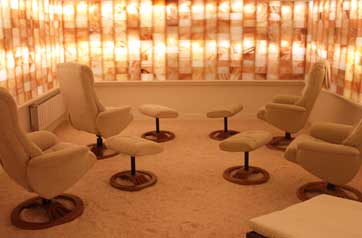Salt Therapy (Halotherapy) for Psoriasis: A Natural Approach
Introduction
Psoriasis is an autoimmune skin condition characterized by rapid skin cell growth, resulting in thick, itchy, and often painful plaques. While there is no definitive cure for psoriasis, various treatments aim to manage symptoms and improve overall skin health. One such alternative therapy gaining popularity is salt therapy, also known as halotherapy.
What Is Salt Therapy?
Salt therapy involves inhaling microscopic salt particles or immersing the body in salt-infused environments. The two primary types of salt therapy are:
Salt Rooms (Halotherapy Rooms): These specially designed rooms simulate natural salt caves. Patients spend time in these rooms, breathing in the salty air.
Salt Baths: Soaking in saltwater baths, particularly those containing Dead Sea salt, is another form of salt therapy.
The Benefits of Salt Therapy for Psoriasis
1. Skin Hydration and Redness Reduction
A study involving participants with psoriasis symptoms found that bathing one arm in a solution containing 5% Dead Sea salt improved skin hydration and reduced roughness and redness after 6 weeks. The magnesium salts in Dead Sea salt enhance water binding in the skin, leading to these positive effects.
2. Anti-Inflammatory Properties
Saltwater therapy, including both salt rooms and salt baths, can soothe inflamed skin and reduce itching. The microscopic salt particles penetrate the skin, helping to alleviate inflammation associated with psoriasis.
3. Exfoliation and Moisturization
Dead Sea salt, rich in calcium and sodium, provides gentle exfoliation. Regular use can help remove dead skin cells and promote healthier skin. Additionally, the minerals in Dead Sea salt, including magnesium, contribute to moisturizing the skin.
Dead Sea Salt vs. Epsom Salt
While both Dead Sea salt and Epsom salt (magnesium sulfate) are used for skin conditions, Dead Sea salt appears to have more significant benefits for psoriasis. Epsom salt may hydrate the skin, but evidence suggests that Dead Sea salt’s minerals can penetrate the skin more effectively.
Safety Considerations
Salt therapy is generally safe for psoriasis sufferers. It can also be beneficial for other skin issues, such as fungal infections. However, it is essential to avoid oral consumption of salt therapy products due to their bitter taste.
Conclusion
Salt therapy offers a natural and potentially effective approach for managing psoriasis symptoms. While it is not a replacement for medical treatments, incorporating salt therapy into your skincare routine may provide relief and improve overall skin health.
Remember to consult with a healthcare professional before starting any new treatments, especially if you have underlying health conditions. Little Himalaya Salt Rooms welcomes you to explore the benefits of salt therapy and discover a soothing oasis for your skin.
Disclaimer: The information provided in this blog post is for educational purposes only. It does not constitute medical advice. Always consult with a healthcare provider for personalized recommendations.


Recent Comments